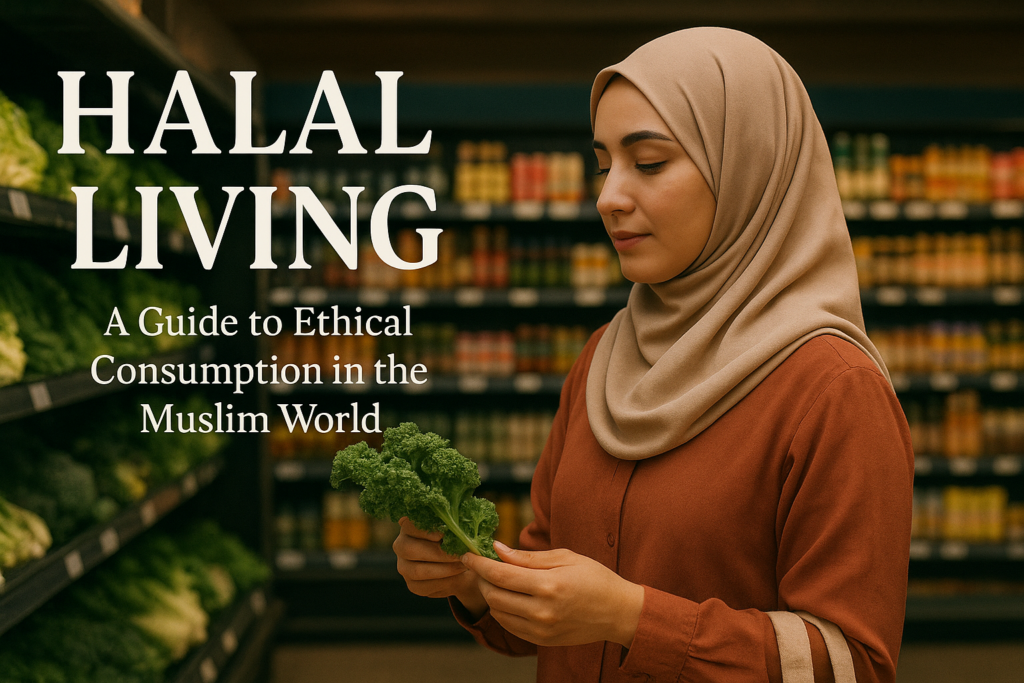In recent years, the concept of halal living has extended far beyond food and dietary laws to encompass a broader lifestyle centered on ethical consumption and mindful choices. Rooted deeply in Islamic principles, halal living promotes a way of life that prioritizes purity, responsibility, and respect for both people and the planet. As awareness grows globally, more Muslims and non-Muslims alike are embracing halal as a framework for ethical consumption that aligns with values of fairness, sustainability, and compassion.
At its core, halal means “permissible” or “lawful” in Arabic, traditionally referring to foods and products that comply with Islamic dietary laws. However, halal living today integrates a holistic approach that covers all aspects of daily life, including clothing, cosmetics, finance, and entertainment. This evolution reflects a growing desire to live authentically while maintaining harmony with religious beliefs and contemporary ethical standards.
One key dimension of halal living is the emphasis on consuming products that are not only free from forbidden ingredients but also ethically sourced and produced. For example, halal-certified food must be prepared following strict guidelines, including humane treatment of animals, hygienic handling, and avoidance of cross-contamination with non-halal substances. Beyond food, halal fashion encourages modest, ethically made clothing that respects workers’ rights and environmental sustainability. This holistic approach ensures that consumption is aligned with both spiritual values and social responsibility.
Ethical consumption within the halal framework also addresses the impact of choices on the environment. Many Muslims see stewardship of the earth known as khalifa as a sacred duty, prompting a shift towards eco-friendly products and sustainable lifestyles. This can include choosing organic and locally sourced foods, reducing waste, supporting cruelty-free cosmetics, and opting for reusable or biodegradable materials. Halal living thus becomes a vehicle for protecting natural resources and promoting long-term well-being.
Financial ethics are another important aspect of halal living. Islamic finance principles prohibit interest (riba) and encourage fairness and transparency in transactions. This has led to the development of halal financial products and investment strategies that avoid exploitative practices and promote social justice. By aligning economic behavior with ethical standards, Muslims aim to foster equitable growth that benefits communities rather than harming them.
The global halal lifestyle movement has sparked innovation and growth in various industries, from halal tourism to wellness products designed to meet the needs of ethically conscious consumers. Many brands now cater specifically to this market by offering halal-certified, cruelty-free, and sustainable options. This trend reflects a broader cultural shift where consumers demand greater accountability and meaning from their purchases.
Living halal today means making informed, conscientious choices that honor faith, promote justice, and protect the planet. It encourages individuals to reflect on the origins and impacts of their consumption habits, fostering a lifestyle of mindfulness and compassion. Whether it’s selecting the right food, choosing sustainable fashion, or practicing ethical finance, halal living is about creating harmony between spiritual values and everyday life.
As awareness and availability continue to grow, halal living offers a powerful example of how ancient religious principles can inspire modern ethical practices. It invites a global community to consider how their choices can contribute to a more just, healthy, and sustainable world for all.

